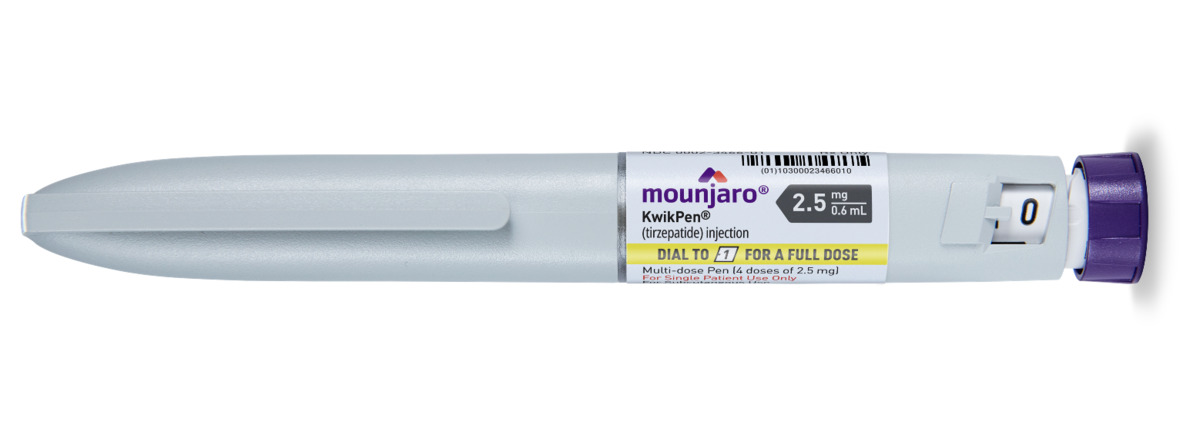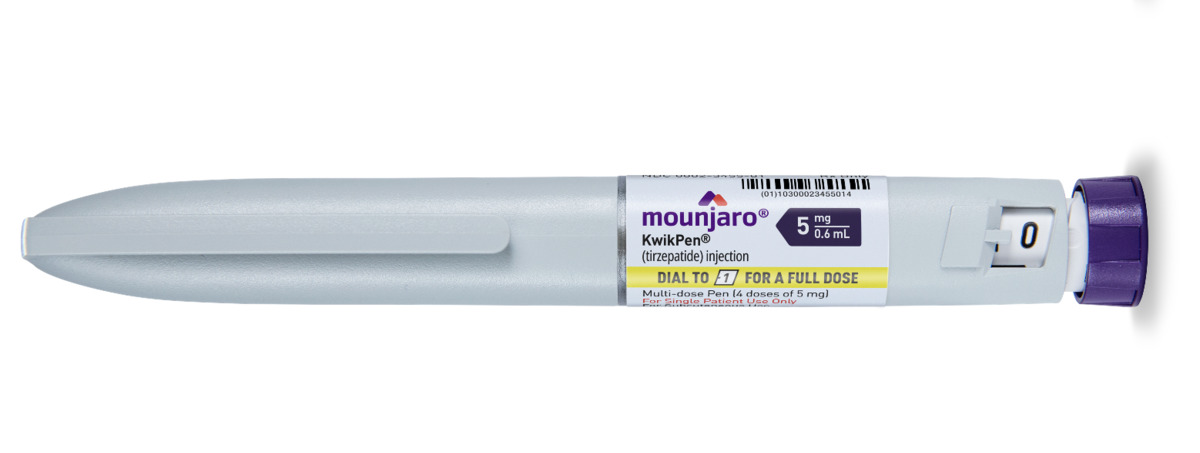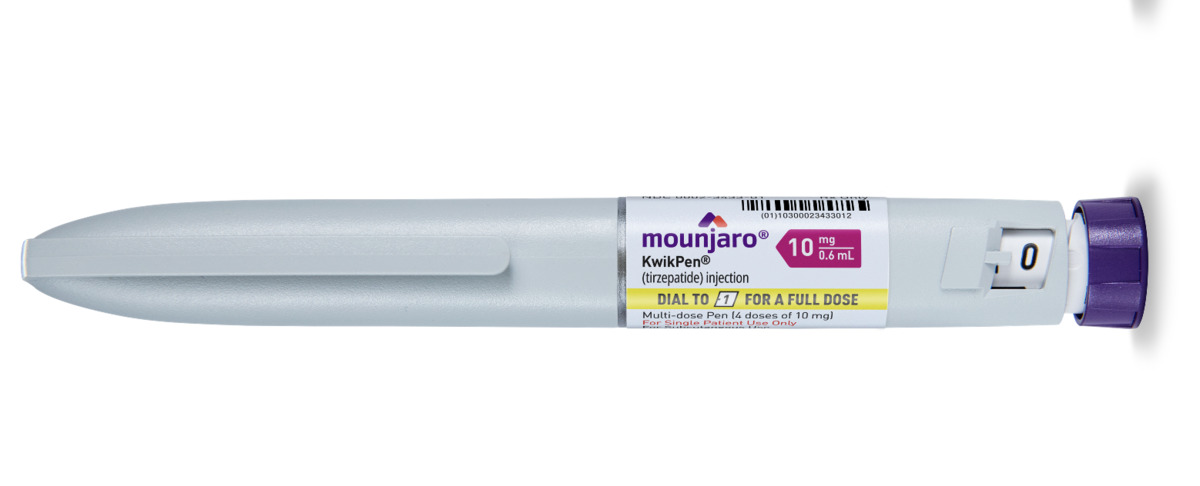Mounjaro Frequently asked questions
Everything you need to know about Mounjaro
Mounjaro® (tirzepatide) is a once-weekly injectable medication that works on two natural hormones, GLP-1 and GIP, to help support weight management and metabolic health. It can help regulate appetite, manage blood sugar levels, and support energy throughout the day. Mounjaro is personalised by healthcare providers, with dosing tailored to each patient’s needs, offering a structured approach for adults living with obesity or overweight conditions alongside lifestyle changes.
Mounjaro (Tirzepatide) is a prescription medication for adults who are looking to lose weight and improve health outcomes related directly to obesity. It is generally recommended for:
- Adults with obesity: Body Mass Index (BMI) of 30 or higher
- Adults who are overweight: BMI of 27 or higher with at least one weight-related health condition, such as type 2 diabetes, high blood pressure, or high cholesterol
Although Mounjaro is licensed for people younger than 18, our clinic only serves patients aged 18 to 75 years. This is because additional precautions are required when prescribing and monitoring medication as part of a distance-selling service.
- Mounjaro is a once-weekly injection in the tummy, thigh, or upper arm
- The dose is started low and increased gradually to reduce side effects
- It is used alongside a reduced-calorie diet and increased physical activity for best results
Mounjaro is started at a low initial dose to help minimise side effects, particularly gastrointestinal symptoms such as nausea. The typical starting dose is 2.5 mg once weekly for four weeks. After this period, the dose is gradually increased in 2.5 mg increments every four weeks, based on individual response and tolerability. The maximum recommended dose for weight loss is 15 mg once weekly. This titration schedule allows the body to adjust to the medication while maximising both safety and effectiveness. Your healthcare provider will closely monitor your progress and adjust the dosage accordingly.
Yes, we can continue your Mounjaro treatment from another provider, but we require evidence of recent use within the last 6–8 weeks. If your evidence is older than 8 weeks, you may need to start at 5 mg, or your prescriber may recommend restarting from the beginning if appropriate.
Acceptable evidence includes an invoice or dispensing label from your previous provider that clearly shows:
- Your full name
- The date of dispensing
- The strength of your last Mounjaro order.
- Starting at the lowest effective dose: Starting low is the best way to reduce GI side effects, but this has to be balanced with keeping your appetite at bay
- Gradual dose titration, as guided by your healthcare provider, can reduce GI symptoms
- Stay consistent: Side effects often lessen over time as your body adjusts
- Speak to your clinician: Your clinician can provide strategies to manage discomfort and monitor your response to the new medication
Losing weight with Mounjaro isn’t just about appearance. Clinical trials have shown improvements in:
- Blood pressure
- Cholesterol and blood sugar levels
- Mobility and physical function
- Overall quality of life
Wegovy® (semaglutide) functions by targeting the GLP-1 receptor to assist in appetite regulation and weight management. Mounjaro® (tirzepatide) operates through a dual mechanism, engaging both the GLP-1 and GIP receptors, which may offer enhanced support for appetite control. Both medications are administered as once-weekly injections and are effective options for weight management. Additionally, Mounjaro has been studied for its impact on liver health, showing potential benefits in reducing liver fat content and improving liver function markers. Currently, Wegovy is the only treatment with published long-term cardiovascular outcome data. The choice between these treatments should be made in consultation with a healthcare provider, considering individual health needs and circumstances.
Yes, many people can transition if supply issues or personal choice make one more preferable to the other. There are no head-to-head “switch” trials, so the decision should be individualised. A healthcare professional will guide you on when to stop one and start the other.
The choice often depends on personal factors such as cost, availability, treatment goals, and how well you respond to the medication. If you’re stable and progressing on Mounjaro and cost is not a concern, continuing may be the best option. If affordability or access is an issue, Wegovy can be just as effective for many people. Clinical trial data provides useful benchmarks, but your individual response matters most. Your healthcare provider will guide your treatment plan, adjust your dosing, and monitor your progress to help you achieve safe and sustainable weight loss.
We support patients in safely reaching a target BMI of around 22, after which we transition them to a maintenance dose of Mounjaro—either 5 mg, 10 mg, or 15 mg, depending on their clinical needs. Patients can remain on this dose for as long as it remains safe and appropriate, with ongoing monitoring.
Around this stage, we also offer a consultation with a clinician to discuss your progress, goals, and mindset. This includes exploring whether and when you might wish to begin tapering off the medication, all at a pace that suits you. Your journey is fully tailored, and we'll continue to guide and support you every step of the way.
Yes - After placing your order for Wegovy, your clinician will email you requesting additional documentation. You will need to upload BMI selfies and proof of your previous treatment, such as a dispensing label or an invoice dated within the last six weeks.If your BMI is under 25, you may also be asked to provide evidence of your starting weight, which can be a letter from your previous healthcare provider. This information helps your clinician determine the correct dose and plan your transition safely and effectively.
Yes - Mounjaro (tirzepatide) can affect the absorption of oral contraceptives. When starting Mounjaro or increasing your dose, it’s recommended to use a non-oral form of contraception or add a barrier method, like condoms, for the following four weeks. This helps make sure your contraception stays effective during these times. It is important to maintain effective contraception if you are of childbearing potential, as weight-loss medications are generally not recommended during pregnancy. Always discuss any planned pregnancy with your healthcare provider before starting or continuing Mounjaro.
Yes - new interim guidelines from the BMS provide specific recommendations for women taking GLP-1 medications like Mounjaro or Wegovy alongside HRT.
- Oestrogen: Oral oestrogen tablets may be affected because GLP-1 medications can slow digestion and reduce absorption. Your GP managing your HRT may want to switch you to a transdermal route—such as patches, gels, or sprays applied to the skin. This ensures the hormone is absorbed directly into the bloodstream, bypassing the digestive system entirely.
- Progesterone: For oral progesterone (e.g., Utrogestan), absorption may also be reduced when starting or increasing Mounjaro or Wegovy. Your GP may recommend doubling your oral progesterone dose for the first four weeks 4 weeks after initiation and for 4 weeks after each dose escalation to maintain adequate protection of the uterine lining. Alternatively, they may suggest switching to a non-oral form, such as a Mirena coil, which provides reliable, consistent local progesterone release directly where it’s needed.





